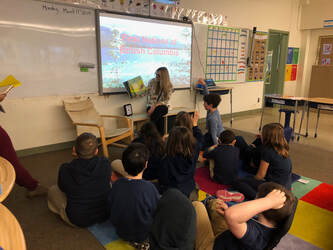
Many of our students struggle with Working Memory challenges. Working memory is the ability to hold information in the short term while performing complex tasks. It incorporates the ability to "draw on past learning or experience to apply to the situation at hand or to project it into the future". As an analogy, I recently heard on Quirks and Quarks that while the "hard drives" of long term memory in our brains can store an impressive 100 terabytes of information, our RAM - or working memory - holds very little but that limited data is critically important to the management of our moment to moment operations.
"It’s like mental juggling", says H. Lee Swanson, PhD, a professor of education with the Graduate School of Education at the University of California, Riverside. “As information comes in, you’re processing it at the same time as you store it,” he says. "A child uses this skill when doing math calculations or listening to a story, for example. She has to hold onto the numbers while working with them. Or, she needs to remember the sequence of events and also think of what the story is about" .
Unfortunately, teachers can overload a student's working memory capacity before he or she has the chance to cement it in their long-term storage. Often it is inadvertent and done mistakenly with the best of intentions. For example, if a teacher is thinking of "multiple modes of presentation" of materials (a basic principle of UDL) or gets caught up in the myth of "learning styles" and thinks in terms of auditory vs. visual learners, she or he might decide to present information in two different ways at the same time. Many teachers make the mistake of verbally giving directions, while posting them on the white board or SMARTBoard simultaneously. Faced with two discordant inputs of the same information, students can become confused and their working memories overloaded. A classic example of this, and one that most of us suffered through in school, is having a "read-aloud" session while the class follows along in their own books. Whether it is the teacher reading, or a series of students, the result is the same. The reader never reads at the same speed as the listeners. Consequently, everyone in the class is getting two out of sync inputs. What they hear and what they are seeing on the page do not match. Working memories are overloaded, and no-one can actually follow the plot.
Contrast that with a typical primary classroom where the teacher reads from a picture book and the students look at reinforcing images. Two complimentary inputs rather than competing ones. The visual image supports and reinforces the auditory inputs rather than muddling them.
When I think of my own experiences as a learner. I reflect that a lecture with visuals, or a short documentary film gets lodged in my long-term memory much more quickly than something listened to in a podcast or read in a book. It is important to remember that reinforcement, rather than duplication, is the key. And that when we think of multiple modes of presentation, it is not about learning styles, it is about managing our cognitive load and cementing our knowledge in our long-term memories.
Learning takes place when students successfully transfer new information from their working memories into their long-term memories. Once those decks are cleared, their working memories are open to absorbing new knowledge and begin the process over again. Long-term memory is like having a database in your brain. You can draw on any of your stored memories without effecting your ability to add new learnings. The faster and more efficiently that we can support our students in accomplishing this, the more their minds are open for business to learn new things!


 RSS Feed
RSS Feed
